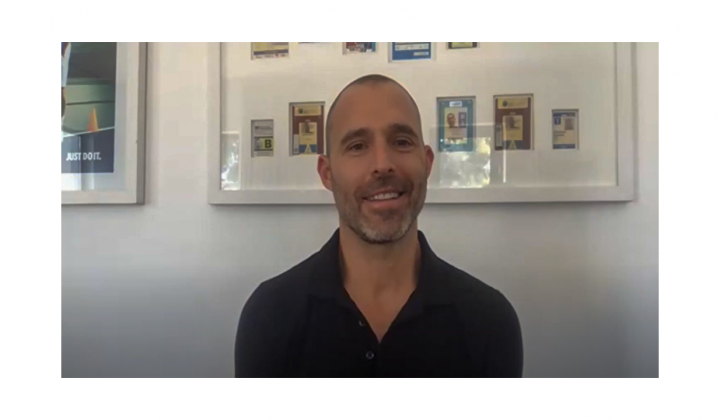The departure of two prominent black banking CEOs, namely Basani Maluleke from African Bank and Daniel Mminele from Absa, is believed to have resulted from a lack of support from their respective boards and shareholders. Controversy followed and put transformation and leadership transition in South Africa back on top of the agenda.
This was despite revelations by the Banking Association South Africa’s (BASA) Transformation in Banking Report 2020 that, for the very first time, there were more black (65%) middle managers compared to their white counterparts, a trend that is assumed will boost numbers for B-BBEE’s management control scores in the future and even address the slow pace of transformation at C-suite level.
Lack of political support from critical stakeholders, such as the board and shareholders, has put a dent in the successful careers of many leaders, particularly those who have transitioned from the private to the public sector. This begs for a closer focus to interrogate its causal effects.
Transitioning into any new role is always daunting. Moving into a public sector leadership position from the private sector is considered one of the toughest career moves given the complex stakeholder structure, the political nature of the environment, perceived political interference, and the demanding societal context. Owing to these factors, many leaders who transitioned from the private to the public sector had limited and even no success to speak of.
The revolving doors at the SABC, SAA, Eskom, the Post Office and other state-owned enterprises have a litany of examples of private sector leaders who have suffered immensely after crossing over to the public sector. Some of the individuals that come to mind include the late Peter Matlare, who left the SABC under a cloud following a fallout with the board and returned to the private sector where he thrived, and former Eskom CEO, Phakamani Hadebe, who did not last at the power utility despite his formidable private sector credentials.
Unfortunately, this has robbed government institutions of potential leaders who could have heeded President Cyril Ramaphosa’s Thuma Mina (Send Me) call to take up opportunities that could contribute to building a better South Africa. In most established countries, leaving the private sector to take up a job in government is considered a great honour, and the state appreciates the value that comes with experience and one’s willingness to serve. This leads me to wonder what this means for the future of this country when experienced corporate leaders are held back from sharing their skills and knowledge in the public sector.
Based on personal experience, I believe that transitioning from the private to the public sector requires much more than a passion for doing good for one’s country. It is brutal and, often, you are met with hostility from the moment you are announced as the incoming leader and perceived as a self-serving capitalist. This animosity, which often comes from unions and public sector careerists who believe they are the succession plan, is more particularly pronounced when it comes to African leaders yet not so overt on leaders from other races. A number of public, acrimonious separations in government departments and state parastatals involve African leaders.
Owing to these stumbling blocks that could dent their promising leadership careers, many are reluctant to consider this option, especially in instances where recently transitioned leaders have been blamed for systemic failures in the organisations and leading to well-publicised separations.
My personal experience
A few years ago, I came across an opportunity and applied to become the CEO of the National Student Financial Aid Scheme (NSFAS). Apart from my solid career in the private sector, with over 15 years of executive management experience in financial services, I saw this position as an opportunity to consolidate my contribution to youth development. In addition, I could extend the impact I have had from founding and running a 14-year-old non-profit organisation, Youth Leadership & Entrepreneurship Development (YLED), that empowers high school learners with entrepreneurship and leadership skills.
As the CEO of NSFAS, I started this new chapter in my career with a great deal of excitement about the meaningful contribution I could make in the public sector. I believe that I am an empowering and inspirational leader, and I always strive to add value in everything I do authentically. I was going to influence youth from disadvantaged backgrounds on a larger scale. I also looked forward to playing a meaningful role in the education of the country’s youth, serving and growing under the leadership of a respected captain of industry, Sizwe Nxasana, who served as the board's chairperson.
However, as I began the role, I got stuck into rescuing and running a successful organisation and left the political manoeuvring to the board, the responsible ministry, the minister and the cabinet (Parliamentary Executive Committee). When there were massive political changes at cabinet and ministerial levels following changes within the ruling party, the environment in the organisation changed drastically to a hostile political and working environment. It also influenced leadership dynamics and had a huge impact on my effectiveness as the leader of NSFAS. This prompted me to resign.
Reflecting on my exit from the public sector, I was reminded of the reasons given for leaving by former South African Airways (SAA) CEO, Vuyani Jarana, as reported by SABC News: “Being at the mercy of the Department of Public Enterprises and Treasury’s slow decision-making process, high levels of bureaucracy, increasingly blurred lines of accountability, and having to constantly try and make SAA commercially sound – with no guarantee of the funding needed.”
Like Jarana, I had not received the transition support I needed when moving from the private to the public sector.
Leveraging on political networks
Research points out that private to public sector leadership transitions require the leader to build a new network of external and internal contacts and, most importantly, possess political skills. In addition, you need different checks and balances when going into the public sector, and on top of that list is high-level due diligence.
Leader transitions and political support
The leader-follower relationship refers to political leaders who welcome a transitioning leader in a politically charged environment such as the public sector. The transitioning leader assumes that leadership support will be displayed in the form of tangible and intangible resources that will aid them to achieve organisational outcomes and increase their chances of success.
The first two decisions are very important in these transitions. They determine if you will receive support from the board, the minister and other stakeholders, which will influence how you are perceived by staff and unions. When a board decides against you the first and second time, it sends a strong message that you don’t enjoy political support and confidence of the board, and that heightens the hostilities towards you by both staff and unions.
Political support is very important and beneficial for a transitioning leader’s success in the new environment, appreciating that political behaviour and skill are required to successfully transition from the private to the public sector.
Personally experiencing the challenges linked with the transition from the private to the public sector in South Africa, and having also observed the experiences of other private sector leaders such as Jarana as they entered public sector roles with little or no success, motivated me to investigate these transitions to provide leaders with key insights on the potential leadership transition drivers.
When the board decides to hire you, they need to support you 100%. If your hiring was a split decision, it becomes clear from the onset and directly affects the posture the union has towards you. If the minister, a political head, does not back you, you will not survive no matter how hard you work. However, as a transitioning leader, you can’t bank on political leadership support alone because this can change overnight and leave you vulnerable.
Transitioning from public to private and vice versa is definitely not the same as transitioning from one industry to another. It requires deft footwork. That footwork is political currency, and when the board and political leaders give you that currency, it buys you support from the union and staff.
My transition may have been a career-impacting move that I am still recovering from, but the lessons are far greater. My experience inspired me to investigate this further to build a platform and gather content that will help future leaders who leverage their skills and passion by transitioning into the public sector to serve and impact society positively. Through this leadership transitioning assessment, I hope that I will make a meaningful contribution to academia and practice.
KEY TAKEAWAYS
My tenure with NSFAS provided a great learning experience that will guide me in my professional decisions in the future.
1. Without key stakeholder buy-in and support, making a meaningful impact becomes a challenge, and on its own, commitment, skill, experience and passion can only move the needle so far.
2. No matter how much you believe in yourself and in the difference you can make, you need a clear mandate along with board and leadership support, competent and committed resources, and the wisdom to know when the tide has turned against you.
3. The transition from corporate to the public sector needs political readiness.
4. Leadership transitions researchers recommend that the transitioning leader be eased into the complexity of the public sector, be mentored and coached for a soft landing.
Steven Zwane is the founder and chairperson of the Youth Leadership & Entrepreneurship Development (YLED), a non-profit organisation, and is also a lecturer and faculty member at GIBS. In addition, he is researching leadership transitions as a part of his doctoral thesis undertaken with the University of Durham.
When a board decides against you...it sends a strong message that you don’t enjoy political support.






